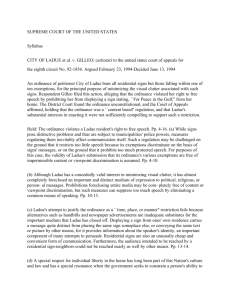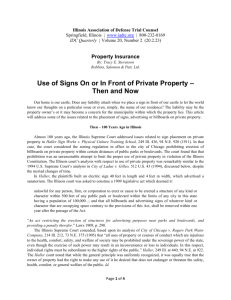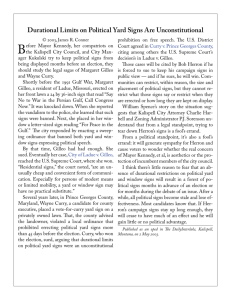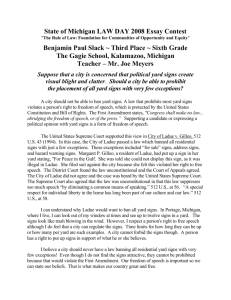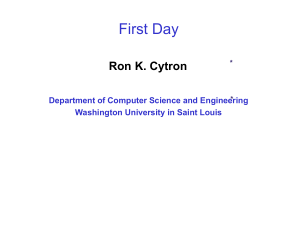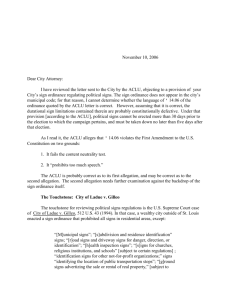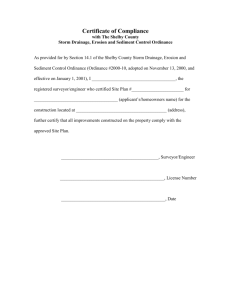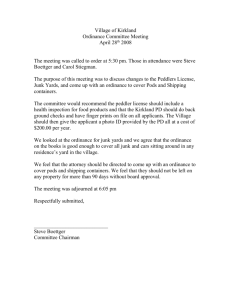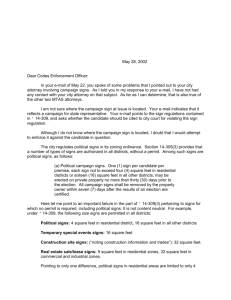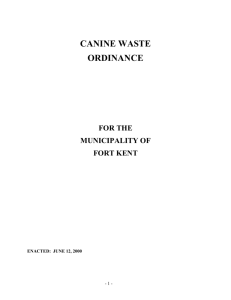Ben Ehreth
advertisement
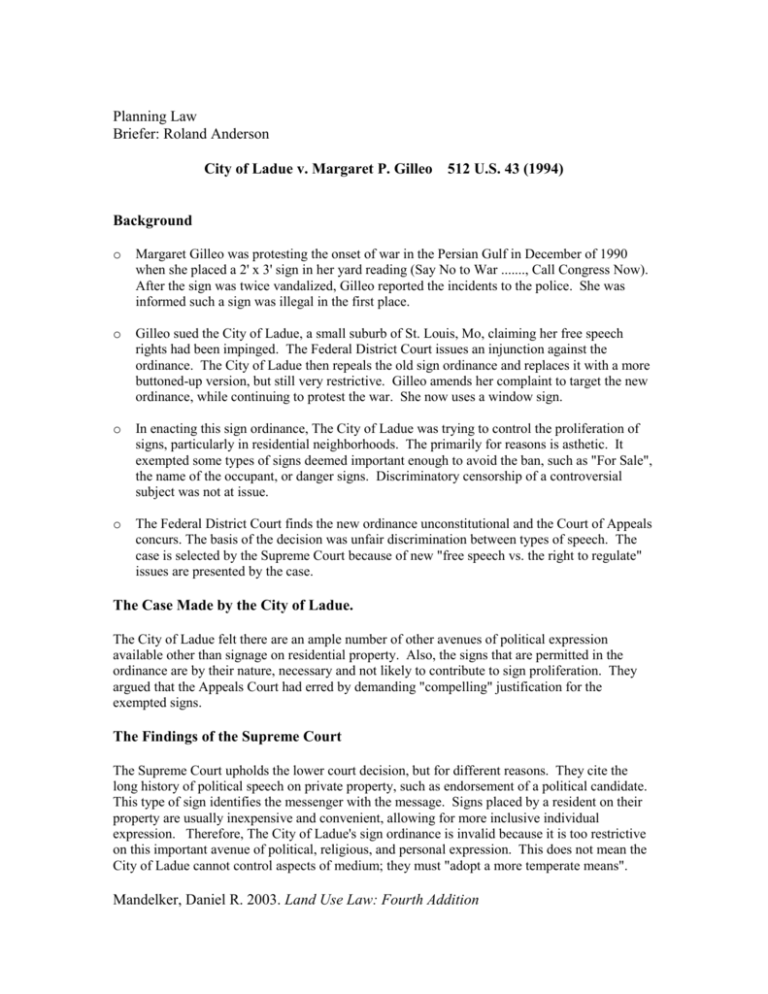
Planning Law Briefer: Roland Anderson City of Ladue v. Margaret P. Gilleo 512 U.S. 43 (1994) Background o Margaret Gilleo was protesting the onset of war in the Persian Gulf in December of 1990 when she placed a 2' x 3' sign in her yard reading (Say No to War ......., Call Congress Now). After the sign was twice vandalized, Gilleo reported the incidents to the police. She was informed such a sign was illegal in the first place. o Gilleo sued the City of Ladue, a small suburb of St. Louis, Mo, claiming her free speech rights had been impinged. The Federal District Court issues an injunction against the ordinance. The City of Ladue then repeals the old sign ordinance and replaces it with a more buttoned-up version, but still very restrictive. Gilleo amends her complaint to target the new ordinance, while continuing to protest the war. She now uses a window sign. o In enacting this sign ordinance, The City of Ladue was trying to control the proliferation of signs, particularly in residential neighborhoods. The primarily for reasons is asthetic. It exempted some types of signs deemed important enough to avoid the ban, such as "For Sale", the name of the occupant, or danger signs. Discriminatory censorship of a controversial subject was not at issue. o The Federal District Court finds the new ordinance unconstitutional and the Court of Appeals concurs. The basis of the decision was unfair discrimination between types of speech. The case is selected by the Supreme Court because of new "free speech vs. the right to regulate" issues are presented by the case. The Case Made by the City of Ladue. The City of Ladue felt there are an ample number of other avenues of political expression available other than signage on residential property. Also, the signs that are permitted in the ordinance are by their nature, necessary and not likely to contribute to sign proliferation. They argued that the Appeals Court had erred by demanding "compelling" justification for the exempted signs. The Findings of the Supreme Court The Supreme Court upholds the lower court decision, but for different reasons. They cite the long history of political speech on private property, such as endorsement of a political candidate. This type of sign identifies the messenger with the message. Signs placed by a resident on their property are usually inexpensive and convenient, allowing for more inclusive individual expression. Therefore, The City of Ladue's sign ordinance is invalid because it is too restrictive on this important avenue of political, religious, and personal expression. This does not mean the City of Ladue cannot control aspects of medium; they must "adopt a more temperate means". Mandelker, Daniel R. 2003. Land Use Law: Fourth Addition
